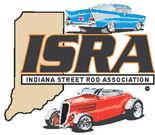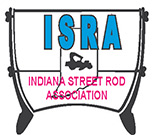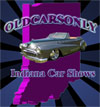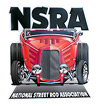Legislative Updates
Click the button below to submit an update. Once approved, the update will be listed below.
Click to submit a new Legislative Update…
Showing items 1 - 4
of 4 total (Page 1 of 1)
- SEMA ACTION NETWORK 2014Bill Introduced in U.S. House of Representatives to STOP SALE OF E-15 "FUEL" Pending Scientific Analysis
SEMA-supported legislation (HR 875) has been introduced in the U.S. House of Representatives directing the National Academies to conduct a scientific assessment on how gasoline blended with 15 to 20 percent ethanol (E15 and E20) may impact gasoline-powered engines, vehicles and related equipment. The analysis would consider a variety of issues including tailpipe and evaporative emissions, impact on OBD systems, materials compatibility and fuel efficiency. The National Academies would have 18 months to conduct its analysis, during which time sales of E15 blended gas would be halted. HR 875 has been assigned to the House Committee on Science, Space, and Technology for consideration. The Committee passed a similar bill last year but no further action took place. The U.S. Senate is currently considering another SEMA-supported bill (S. 344) to ban sales of E15.
We Urge You to Contact Your Congressional Representative to Request Support for H.R. 875
• H.R. 875 acknowledges that E15 causes corrosion with incompatible parts. Ethanol increases water formation which can then corrode metals, plastics and rubber. The EPA allows use of E15 in 2001 and newer vehicles, but agreed to make it “illegal to fuel pre-2001 vehicles” with E15. A required warning label on the gasoline pump will not protect consumers from accidentally misfueling these vehicles/engines.
• H.R. 875 prevents the EPA from permitting the sale of E15 before the report from the National Academies has been submitted to the House Science Committee.
• H.R. 875 potentially protects millions of vehicles and engines that can be harmed from E15. The EPA was premature in permitting the sale since it is still unclear how E15 impacts tailpipe and evaporative emissions, OBD systems, materials compatibility and fuel efficiency.
DON’T DELAY!
Click here to contact your member of the U.S. House of Representatives to request support for H.R. 875. Under Federal Officials, Identify Your Congressional District Representative: http://semasan.com/lookup.asp?g=semaga
For more information, contact Dan Sadowski at dans@sema.org.
MP - 5th Annual Collector Car Appreciation Day to be Celebrated July5th Annual Collector Car Appreciation Day to be Celebrated July 11, 2014-
The SEMA Action Network (SAN) announced that the next Collector Car Appreciation Day will be celebrated on July 11, 2014. The date will mark the fifth consecutive commemoration in what is now an annual event to raise awareness of the vital role automotive restoration and collection plays in American society.
“With the 2013 celebration now behind us, car enthusiasts and related businesses can begin planning open houses, car cruises, club gatherings and educational events to mark the 2014 commemoration” said SEMA Vice President of Government Affairs Steve McDonald. “The passion for the collector car hobby that continues to be demonstrated by SAN members nationwide is most clearly evident in this special day.”
The U.S. Senate helped launch Collector Car Appreciation Day by passing Resolutions each year at SAN’s request. The previous resolutions were sponsored by Senator Jon Tester (D-MT) and Senator Richard Burr (R-NC). Senators Tester and Burr have been strong advocates for the automotive hobby in Washington, D.C., and recognize the integral role collector cars have played in fostering our nation’s appreciation for the automobile’s unique historical place in our history. This year, New Mexico, New York, Manitoba, Nova Scotia, Madera County, California and Washington Parish, Louisiana joined the U.S. Senate in proclaiming Collector Car Appreciation Day.
The SAN will again maintain and publicize a list of scheduled events to commemorate America’s time-tested love affair with the automobile at semaSAN.com/CCAD. Individuals, car clubs and business owners interested in publicizing events can submit the details of their celebration using this link. For questions, contact SAN Director Colby Martin at 909-978-6721 or san@sema.org. If you are unable to celebrate on July 11, the SAN encourages events to be scheduled throughout the month of July 2014.
MP - SEMA ACTION NETWORK (SAN) 2013 ACTIVITYThe Case Against Ethanol
Corn and Fuel Don’t Mix
The Dangers of Pumping Ethanol
Fed a steady diet of corn, a staggering number of vintage vehicles in the United States are now suffering from clogged arteries. The culprit? Ethanol.
The issue is straightforward. Countries around the world are supplementing their gasoline with biofuels, primarily ethanol. In the United States, ethanol is distilled from corn but cellulosic ethanol can also be distilled from switchgrass, sugarcane, wood chips and other agricultural byproducts. Supplementing the petroleum-based fuel supply in this manner may be a well-intentioned effort to reduce oil dependency, but it is not cost-effective and results in severe consequences to your collector vehicle’s engine.
Most new vehicles are constructed with materials that resist ethanol’s potentially harmful properties when small concentrations of the biofuel are used, such as 10% ethanol by volume (E10). However, that is not the case with older cars and current high-performance specialty parts. Condensation created by this gasoline can damage engines and result in corrosion, rust, clogging and deterioration of fuel-system components.
The U.S. Congress enacted the Renewable Fuel Standard (RFS) in 2005 and then set ambitious mandates for the amount of ethanol to be blended into gasoline each year, going from 9 billion gallons in 2008 to 36 billion gallons by 2022. In order to meet the ever-growing RFS biofuel mandate, the U.S. Environmental Protection Agency (EPA) recently permitted the sale of 15% ethanol (E15) in gasoline. In the process, the EPA acknowledged that E15 poses a risk to older cars and therefore made it “illegal” to fuel pre-’01 vehicles. However, the agency is only requiring a gasoline-pump warning label to alert motorists that E15 could potentially cause equipment failure in older vehicles.
The EPA’s decision has spawned a huge battle across America. A coalition of unlikely partners has come together to fight E15. They include organizations such as the SEMA Action Network (SAN) representing collector cars and their owners, along with the boating industry, lawn-equipment manufacturers and the oil industry. It also includes the food industry (corn prices are increasing as a portion of the crop is being diverted to fuel) and environmentalists (the land, transportation and energy costs to produce ethanol undermine the benefits).
The battle’s outcome is still unknown. The EPA’s decision is being challenged before the U.S. Supreme Court. In Congress, lawmakers are considering legislation to ban E15 and also reduce the RFS mandates, the driving force behind E15. Both H.R. 875 in the U.S. House of Representatives and S. 344 in the U.S. Senate are supported by the SAN. A timeframe for resolving the debate is unclear, but the issue has become very contentious.
While it is now legal to sell E15 in America, there are only a handful of stations currently marketing the product. The infrastructure for most stations has not yet been certified for the fuel. More importantly, most automakers have not certified their vehicles for E15. Therefore, they may void the warranty for any E15-related damage.
This year, states such as Florida, Maine, Oregon and West Virginia have taken the lead in dealing with the ethanol issue on a local level. In fact, legislation to repeal the requirement that all gasoline offered for sale in the state contain a percentage of ethanol is on a fast track in Florida. As this article went to print, the bill had been approved by the Florida House and Senate and sent to the governor for his signature and enactment into law. Currently, Florida requires that all gasoline sold by a supplier, importer, blender or wholesaler contain 9%–10% ethanol, or other alternative fuel, by volume.
For auto enthusiasts in the United States, the message to lawmakers and regulators about ethanol has been clear: “Hit the brakes on E15.” - Mike POur State Legisaltive Represenatives and those who we send to Washingtion are as important to us as we are to them at election time.
Be familiar with those who represent you and your ISRA in Indiana and in Washington.
Be aware of those who serve our hobby!
If you learn of concerns relative to any aspect of our hobby, let us know so we can confirm or not confirm it to be real.
If we as the ISRA are made aware of potential issues early on we can begin work on it before it becomes a real issue.
Showing items 1 - 4
of 4 total (Page 1 of 1)





